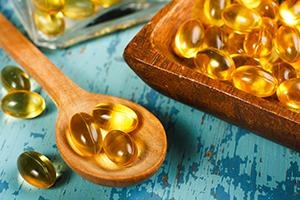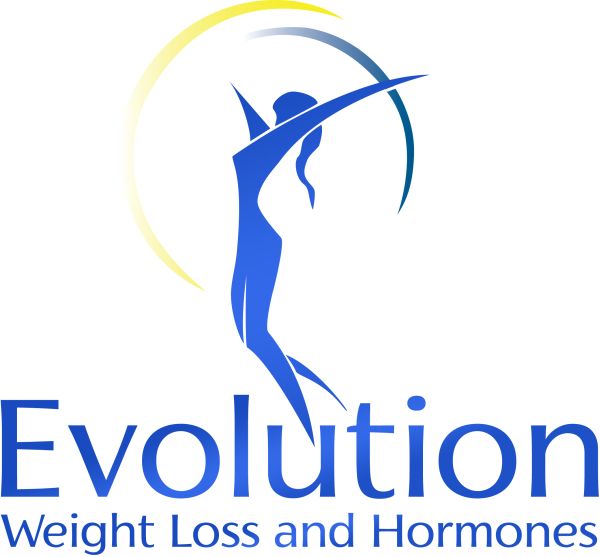Nutritional and Supplemental Treatments for Cirrhosis in Hudson, FL

Like a metabolic customs agent, your liver filters all dangerous toxins and bacteria out of your blood – every 3 minutes.
But when it becomes severely inflamed by viruses like hepatitis C, toxins (like alcohol and certain pharmaceuticals), or hormone imbalances (like low DHEA and high estrogen), liver tissue can succumb to severe scarring and fibrosis.
One of the most common symptoms of cirrhosis is malnutrition, most often caused by alcohol abuse. A heavily scarred liver can no longer process and store vital nutrients, causing vitamin and mineral deficiencies. Nutritional and supplemental therapy can replenish these nutrients while also addressing other cirrhosis symptoms.
To meet with a Hudson nutritional and supplemental specialist today for treatment for cirrhosis, call (813) 536-3212 or contact Evolution online.
Nutrients and supplements to help stop progression of cirrhosis
As with any medical procedure, results of the following cirrhosis treatments will vary from patient to patient depending on age, genetics, general health, condition severity, follow-up care, and environmental factors. They may present contraindications with one another, and/or with other medical conditions. Consult your healthcare provider before embarking on your treatment journey.
Dietary nutrition
Cirrhosis patients are almost always put on a low-sodium diet, especially when they have poorly responsive ascites. They must also avoid fructose and sugared beverages – a frequent cause of weight gain that’s easily avoidable. Chronic liver disease patients have difficulty digesting dairy products, probably because of small intestine bacterial overgrowth.
Instead, they should ingest more of the following minerals and vitamins, either in food or in supplement form:
lean protein
Cirrhosis patients require an adequate protein intake to prevent muscle wasting. Omega-fatty acid rich fish (salmon, mackerel, tuna, sardines) and skinless chicken or turkey and other poultry is rich in protein.
whole grains
These complex carbohydrates can combat low blood sugar and provide energy, which a cirrhotic liver struggles to generate. Oats, brown rice, bulgur, whole rye, whole wheat, and barley are rich in complex carbohydrates, which help reduce the burden of insulin resistance (a damaged liver has trouble regulating blood sugar). Side effects may include headaches, bad breath, muscle cramps, weakness, skin rash, constipation, and diarrhea.
leafy green vegetables
Spinach, kale, broccoli, brussel sprouts, and cabbage are all rich in these regenerative vitamins and minerals:
- vitamin K:.helps revive nutrient absorption, which liver damage interferes with; also produces prothrombin and other blood-clotting factors
- folate (vitamin B9): folic acid helps form red blood cells and plays a role in protein metabolism, helping reduce blood homocysteine levels
- vitamin A: required for cellular reproduction and differentiation
- iron: decreases fatty acid composition in the liver
- sulfur: the sulfur in kale helps break down toxins, alleviating chronic inflammation
Many of the supplements listed below are found in foods. Your healthcare provider can help determine whether optimal absorption will be achieved via supplements or food in your specific case.
Cirrhosis patients are often deficient in multiple micronutrients – most commonly zinc3. Vitamin supplementation can stimulate regeneration, reduce complications of cirrhosis, and improve surgery outcomes2.
Zinc
Zinc is an essential trace element that enables normal cell growth, development, and differentiation. Zinc deficiency (very common in cirrhosis patients) disrupts these metabolic functions3. Prescribed doses must be monitored and strictly adhered to. Zinc can be found in crab, red meat, poultry, whole grains, legumes, nuts, seeds, eggs and dairy products. Excessive doses can cause changes in taste, stomach pain, and diarrhea.
Magnesium
This mineral helps turn glucose into energy so that too much insulin isn’t required, while enabling nerve conduction and muscle relaxation to resolve muscle cramps3. Leafy greens, figs, avocados, bananas, legumes, salmon, mackerel, tuna, nuts and seeds are all rich in magnesium. Side effects of overdosing include: diarrhea, vomiting, weak muscles, irregular heartbeat, and inability to empty the bladder.
Potassium
This mineral is classified as an electrolyte because when dissolved in water, it produces positively charged ions, helping to regulate the body’s fluid balance and nerve impulses. Low potassium levels have been linked to liver damage.
Beets, yams, pinto beans, Portobello mushrooms, avocados, spinach and kale are excellent sources of potassium. Citrus fruits like lemons and limes can help reduce your body’s acid levels, balancing pH levels and impacting potassium levels. Side effects include vomiting, abdominal pain, gas, and diarrhea.
Vitamin A
Vitamin A deficiency is a factor in approximately 50% of alcoholic cirrhosis patients. This vitamin helps maintain soft tissue and white blood cell count. It also acts as an antioxidant, protecting cells from free radical damage3. Vitamin A-rich foods include: carrots, sweet potatoes, cantaloupe, and spinach. Side effects include bleeding gums, sore mouth, confusion, dizziness, headache, irritability, and diarrhea. High doses can be toxic.
Vitamin B-1
Cirrhosis scarring and fibrosis disrupt absorption of Vitamin B-1. Deficiency of this crucial vitamin can cause mental confusion, poor coordination, and memory problems. Vitamin B-1 is also found in: beef, pork, oats, eggs, oranges, seeds, and peas. Over-supplementation can cause tightness in the throat, nausea, mild rash, restlessness, and sweating.
Vitamin B-6
Cirrhosis makes it difficult for your body to absorb B-6, and a deficiency can cause numbness and tingling from nerve damage. Foods with B-6 include fish, beef liver, and potatoes. Overdosing can cause upset stomach, sleepiness, sunlight sensitivity, and a tingling or burning in hands and feet.
Vitamin B-12
Cirrhosis disrupts absorption of this vitamin, and a deficiency can cause fatigue, confusion, headaches, and moodiness. B-12 can be found in cereal, yogurt, and rice. Side effects of high doses include: headaches, itching, swelling, anxiousness, and uncontrollable movements.
Vitamin C
Vitamin C deficiency causes loss of collagen which can lead to scurvy3. This powerful anti-oxidant protects cells from free radicals and aids in iron absorption. Overdosing on Vitamin C, however, can cause flushing, headache, vomiting, diarrhea, and dizziness. Fruits are very rich in vitamin C, especially cantaloupe, oranges, mangos, strawberries, and watermelon.
Vitamin D
A lack of vitamin D weakens the immune system3, as this crucial vitamin signals other immune cells to start functioning1. Vitamin D-rich foods include tuna, salmon, cheese, beef liver, and egg yolks.
Over-supplementation may cause confusion, muscle weakness, bone pain, weight loss, extreme thirst, frequent urination, vomiting, and kidney stones.
Vitamin E
Vitamin E can reduce scar tissue by disrupting liver stellate cells’ collagen production. Supplementing this vitamin can soften cirrhosis scar tissue to improve blood flow to the liver, and maintain high levels the antioxidant glutathione.
In a study published by the New England Journal of Medicine, both patients who took pioglitazone and those who took Vitamin E improved levels of liver cell-injury markers in blood, and reduced liver fat levels and inflammation. But only vitamin E produced significant improvements in the appearance of liver tissue on biopsies5.
Vitamin E foods include peanuts, sunflower seeds, and broccoli. Side effects of overdose include: vomiting, diarrhea, headache, rash, fatigue, blurry vision, and genital inflammation.
Vitamin K
Damaged livers are unable to produce enough clotting factors, causing bruising or bleeding from enlarged veins in the esophagus. Cirrhosis patients should drink juice from spinach, kale, parsley, wheatgrass, and alfalfa sprouts. Over-supplementation can cause: decreased appetite, breathing difficulties, enlarged liver, swelling, irritability, muscle stiffness, and paleness.
Other supplements
Probiotics
Studies have shown that probiotics (live bacteria) like Lactobacillus rhamnosus GG can stabilize gut barrier function, improve gut flora, and regulate liver enzymes, while decreasing endotoxin and ammonia levels3. If probiotic supplements are not right for you, probiotic-rich foods include sauerkraut, kefir, and yogurt. While most people experience no side effects, some report gas, bloating, constipation, and increased thirst.
SAM-e
It’s been well established that SAM-e restores glutathione and decreases dangerous levels of TBIL and AST in chronically damaged livers. This antioxidant can normalize bilirubin and liver enzyme levels to disrupt liver cell damage. It can be taken via oral supplement or intravenously. Potential side effects include: diarrhea, constipation, dry mouth, dizziness, anxiety, and skin rashes.
Omega-3 fatty acids
Omega 3 fatty acids regulate fatty acid synthesis, oxidation, and the breakdown of fats in the blood. DHA, the most important omega fatty acid, has been shown to arrest the progression of liver disease3. Foods like soybeans, salmon, mackerel, tuna, and sardines are rich in omega fatty acids. Excessive amounts of omega-3 fatty acids may cause upset stomach and nausea.
Albumin
Liver-produced albumin makes up 60% of the total protein in your blood. It keeps fluid from leaking out of blood vessels, nourishes tissues, and transports hormones, vitamins, and other substances throughout the body4.
Albumin is delivered through intravenous infusion. You can increase your albumin levels by eating protein-rich foods like beef, pork, lamb, and vegetables. Over-supplementing may cause nausea, vomiting, fever, chills, fast heart rate, flushing, and a mild rash.
Contraindications
The following medications can negatively interact with these supplements:
- aspirin
- corticosteroids
- weight-loss medicines
- antibiotics
- diabetic medications
- seizure medication like phenytoin
- calcium supplements
- antacids
- medications for skin conditions
- chemotherapy
- drugs that harm the liver
- warfarin
- amiodarone
- levodopa
- chloramphenicol
- estrogen
- medications for HIV/AIDS
- fluphenazine
- medications for high cholesterol, like niacin
- medications for high blood pressure
- bisphosphonates
- muscle relaxants
- immunosuppressants like penicillamine
- antidepressants
- prescription painkillers
- cough medicine
Reserve your appointment
A liver-friendly nutritious diet along with supplemental vitamins and minerals can help prevent cirrhosis-caused malnourishment, and possibly even arrest the disease’s progression. To meet with a nutritionist or liver specialist today in Hudson call (813) 536-3212 or contact Evolution online.
Sources:
1. Aranow, Cynthia. “Vitamin D and the Immune System.” Journal of investigative medicine : the official publication of the American Federation for Clinical Research 59.6 (2011): 881–886. PMC. Web. 11 Oct. 2018.
2. Bémeur, Chantal, and Roger F. Butterworth. “Nutrition in the Management of Cirrhosis and Its Neurological Complications.” Journal of Clinical and Experimental Hepatology 4.2 (2014): 141–150. PMC. Web. 13 Sept. 2018.
3. McClain, Craig J. “Nutrition in Patients With Cirrhosis.” Gastroenterology & Hepatology 12.8 (2016): 507–510. Print. 13 Sept. 2018.
4. McCormick, P A et al. “Intravenous Albumin Infusion Is an Effective Therapy for Hyponatraemia in Cirrhotic Patients with Ascites.” Gut 31.2 (1990): 204–207. Print. 13 Sept. 2018
5. Sanyal AJ, Chalasani N, Kowdley KV. Pioglitazone, vitamin E, or placebo for nonalcoholic steatohepatitis. N Engl J Med. 2010 May 6;362(18):1675-85. doi: 10.1056/NEJMoa0907929. Epub 2010 Apr 28
Evolution
Address
4691 Van Dyke RoadLutz, FL 33558
(813) 536-3212
www.evolution4health.com
Hours
Mon:
10:00 am - 4:00 pm
Tue:
10:00 am - 4:00 pm
Wed:
10:00 am - 5:00 pm
Thu:
10:00 am - 6:00 pm
Fri:
10:00 am - 3:00 pm
Sat:
Closed
Sun:
Closed

